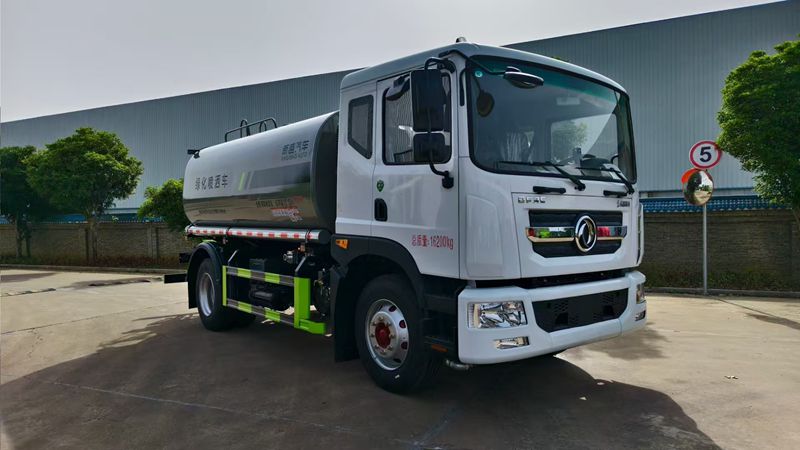Sprinkler trucks are expanding their influence in fostering vibrant community environments, from maintaining neighborhood green spaces to serving as tools for environmental education. With a focus on sustainability and community engagement, these vehicles are becoming key players in building greener, more connected urban areas.

Cultivating Community Green Oases
In urban neighborhoods where access to nature is limited, sprinkler trucks are instrumental in maintaining small parks, community gardens, and pocket green spaces. In Detroit, Michigan, a city with many vacant lots being transformed into community gardens, sprinkler trucks make regular rounds to ensure these green oases thrive. The trucks deliver water to plots tended by local residents, supporting the growth of vegetables and flowers that not only beautify the area but also provide fresh produce for families. Garden organizers report that plots watered by sprinkler trucks have a 40% higher yield than those relying on manual watering.
In Berlin, Germany, sprinkler trucks are used to maintain “green corridors”—strips of vegetation between buildings that connect larger parks. These corridors, kept lush by regular sprinkling, provide habitats for pollinators and improve air quality. Local residents value them as peaceful retreats, with usage of these spaces increasing by 25% since the sprinkler maintenance program began.
Driving Environmental Education Initiatives
Schools and community centers are partnering with municipal teams to use sprinkler trucks as educational tools. In Portland, Oregon, elementary school students participate in “Water Wise” programs where they learn about water conservation by observing sprinkler truck operations. Students track how much water is used to maintain the school lawn, calculate usage efficiency, and even suggest adjustments to the sprinkling schedule. Teachers note that these hands-on lessons have increased students’ awareness of water conservation by 60%.
In Tokyo, Japan, sprinkler trucks visit community centers to demonstrate sustainable watering techniques. Residents learn how to adjust spray patterns, time watering for maximum efficiency, and identify plants’ specific water needs. These workshops have led to a 30% reduction in water usage in community gardens across the city.
Combatting Greenery Pests and Diseases
Sprinkler trucks are being adapted to help protect urban greenery from pests and diseases in eco-friendly ways. In Melbourne, Australia, some sprinkler trucks are equipped to apply organic pest repellents derived from neem oil and garlic to public trees and shrubs. This targeted approach reduces the need for harsh chemical pesticides, protecting beneficial insects while keeping greenery healthy. Arborists report a 28% decrease in pest infestations in treated areas.
In Singapore, where humidity can lead to fungal diseases in plants, sprinkler trucks use specialized nozzles that deliver water directly to plant roots rather than wetting leaves. This method reduces moisture on foliage, lowering the risk of fungal growth while still providing essential hydration. The technique has proven particularly effective in maintaining the city’s iconic street trees.

